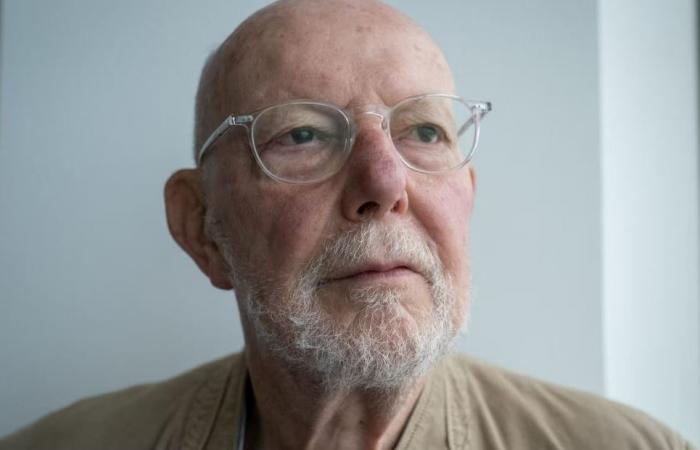A page turns. The founder of theThursday Event and of MarianneJean-François Kahn, died at the age of 86, his entourage announced this Thursday to AFP, confirming information from Point. Son of the philosopher Jean Kahn and brother of the geneticist doctor Axel Kahn, who died in 2021, Jean-François Kahn was also a polemicist, involved in the center.
“Revolutionary centrism”
The press man had supported the candidacy of François Bayrou for the presidential election in 2007, then in 2012, saying he was “convinced that he was the man France needed”.
He ran for the 2009 European elections on a MoDem list but without taking the party card. He will resign as soon as he is elected to resume writing and the debates he loves so much.
“Jean-François Kahn was a giant and a rare man,” reacted the current Prime Minister, François Bayrou, on the social network The incredible creativity that animated him, his audacity, made him found real period newspapers, ''L'Événement du Jeudi'', Marianne. He embodied “revolutionary centrism”, humanism and loyalty. We loved him. » Jean-François Kahn, who contributed to numerous television debates, will remain a big name in the French press.
“I became a journalist out of weakness”
“He was an intellectual before being a journalist,” reacted to Maurice Szafran, who co-founded in 1997 Marianne at his side. According to him, “journalism was a way of understanding history, of making history and of being part of history”. At the head of the magazine from March and in contact with it until recently, Frédéric Taddeï said he was “terribly sad”. “He was very important to me. […] I already read the Nouvelles Littéraires when I was 18″, where he was editorial director, and “he was quite a press boss”, he stressed to our colleagues at AFP. Denis Olivennes, president of CMI France, owner of Marianne, said he feared “that there will never be another model of this”.
The young Jean-François Kahn opted for teaching. But, “to escape the harshness of the teaching profession, I became a journalist out of weakness,” he confided a few years ago. It is politics that fascinates him and the policies that he likes to provoke, with a sparkling eye behind thick glasses. In 1984, he was the first to challenge Jean-Marie Le Pen by debating with him. The courteous debate will turn into a dialogue of the deaf and JFK the swashbuckler will gloat, affirming that we can counter the extreme right on the debate of ideas.
-Politics to the end
His strong character appeals to many media. Having joined Paris Presse at a very young age, he covered the Algerian war and revealed the Ben Barka affair, the Moroccan opponent kidnapped in the middle of Paris by police officers in 1965 and whose body was never found.
L’Express, The World, Europe 1the management of Literary Newsof Paris dailybriefly from Matinhe indulges his passion for the press and does not mince his words. In 1986, after five years of “Face to Face” debate with Alain Duhamel, he was fired from Europe 1 for having called the bosses of Hachette, then owner of the radio, “sharks”. At the same time, his talent as an interviewer often brought him to the set of “L’Heure de Vérité”.
In 1984, he launched theThursday Eventa weekly with a unique concept: a newspaper that belongs to its readers. For one Pascal (the 500 franc note at the time), you become a shareholder of the EdJ. The magazine prospered for a short decade before ending up in the hands of Hachette and disappearing after a few vain attempts at relaunch.
Jean-François Kahn left the ship in 1997 to launch Mariannea new press success even if advertising revenues are not there. He announced his retirement from journalism in 2011, after a highly criticized comment on the Strauss-Kahn affair. “If it’s a servant’s kit, it’s not good,” he said on France Culturebefore apologizing.
JFK, however, wrote columns in the Belgian daily The evening, until 2022. Author of numerous works, mainly political, he had also released Don't ever call me left againlast year, published by the Observatory. According to Maurice Szafran, he had just finished a book on “the return of fascism”.






